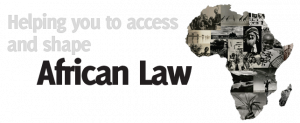Working to Bring Open Access to Africa
“At its most fundamental level, the problem is one of access to the sources of law on the African continent. Judges, legal professionals, civil society organizations and the general public have difficulties in accessing legal information. This is negatively impacting on the rule of law, access to justice, and economic development.” — Mariya Badeva-Bright, AfricanLII
 AfricanLII is unusual. Like the 22 other LII “namesakes” around the globe, it promotes open access to legal information. Unlike any of the others, it is not identified with a particular country or jurisdiction. Instead, it supports the construction and operation of “national LIIs” in African countries. Right now, it helps 8 African nations (Lesotho, Liberia, Malawi, Mozambique, Sierra Leone, the Seychelles, Swaziland, and Zimbabwe) make their law freely available to the public. Next year, it will add two more. And it is working with partners in South Africa, Uganda, Kenya, and Zambia to form networks of regional cooperation that will make each of the national organizations more resilient, more effective, and far more self-sufficient.
AfricanLII is unusual. Like the 22 other LII “namesakes” around the globe, it promotes open access to legal information. Unlike any of the others, it is not identified with a particular country or jurisdiction. Instead, it supports the construction and operation of “national LIIs” in African countries. Right now, it helps 8 African nations (Lesotho, Liberia, Malawi, Mozambique, Sierra Leone, the Seychelles, Swaziland, and Zimbabwe) make their law freely available to the public. Next year, it will add two more. And it is working with partners in South Africa, Uganda, Kenya, and Zambia to form networks of regional cooperation that will make each of the national organizations more resilient, more effective, and far more self-sufficient.
What’s our involvement? The LII has worked on the problem of legal access in Africa since 1996, when we were instrumental in the founding of the Zambian LII, ZamLII. More recently, working with the Open Society Institute and the Canadian International Development Research Center and with LIIs in Africa, India, and Canada, we have identified the critical success factors that will allow others to do as we have done. In turn, we’ve learned how to make legal information happen under conditions that we can barely imagine. Sometimes the help has been at a more practical level — a few months ago, Sara Frug and the LII’s engineering team helped AfricanLII move its hosting services to a more stable platform in the “cloud”, offering faster and more reliable service to African users of the service. We can be — and often are — called into a strategy session at a moment’s notice, using Skype and collaborative document writing and editing to put us “just down the hall” from AfricanLII’s headquarters in Johannesburg.
Often, we’ve been called on to explain the practical advantages of open access to law. In Africa, open access to law helps ensure basic human rights — and it also leads to stronger economies and better public administration. As LII Director Tom Bruce remarks, “Public legal information does more than simply saying what the law is. Knowing what the law is has incredible value if you are involved in a legal proceeding, of course. But legal information also provides a showcase for official bodies, advertises opportunities for economic development, provides information about the stability and likely direction of the business climate, and encourages the formation of transnational communities of practice”.
Mariya says, “We have heard of places in Africa where lawyers base their arguments in court purely on personal conviction, rather than on the law. Where there are LIIs, we begin to see that legal argument and the quality of justice are improving.”
We’re proud to help make that happen — and not so proud that we can’t learn from those in Africa that are making it happen every day.


